Seven Books to Read When Insomnia Strikes
7 min read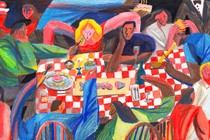
Few experiences are as torturous as lying awake under the weight of exhaustion, wishing for sleep but watching the clock creep closer to morning. Modern conditions—too much blue light, too little exercise, and an uninterrupted flow of caffeine, compounded by the psychological pressures of living in a world that seems to be coming apart—have made insomnia an epidemic.
In response, the wellness industry and influencers have flooded our feeds with supposed fixes for sleeplessness: powdered mushrooms, melatonin, meditation, computer glasses, and Z-drugs and benzodiazepines. Since my graduate-school days, severe and chronic insomnia has held me hostage for days on end, and during this time, I’ve tried every remedy. Over the years of sleepless nights, my greatest solace has always been literature, because the true torment of insomnia is solitude: We have no choice but to spend the late, uninterrupted hours alone with our own thoughts. A book, however, can offer another voice in the darkness, ready to soothe a restless mind. These novels and essays contemplate such encounters with the self; even when we’re the only person stirring between sundown and dawn, they remind us that we have company in our loneliness.
Journal of a Solitude, by May Sarton
Sarton’s aptly titled Journal of a Solitude records the personal and professional preoccupations of a queer, middle-aged writer from her voluntary isolation in the remote village of Nelson, New Hampshire, where she’s retreated in hopes of “cracking open the inner world again.” The entries are by turns philosophical and mundane: Sarton’s creative life is intimately influenced by examinations of her own emotional landscape and close observations of her house and garden. Her attitude toward solitude is strikingly ambivalent, as her freedom from social and professional obligation is tempered by daily confrontations with the inner demons from which there is no distraction, no defense. “Here in Nelson I have been close to suicide more than once,” she writes, “and more than once have been close to a mystical experience with the universe.” Sarton’s nocturnal life, like her poetry, ebbs and flows with the seasons and her changing frames of mind—sleep is a rich indulgence, but one that eludes her for days at a time. A rich and sensuous account of the life of the mind, Journal of a Solitude makes a long night feel shorter, by savoring the pleasures of loneliness as much as the anguish.

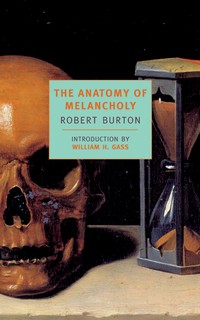
The Anatomy of Melancholy, by Robert Burton
Originally published in 1621, The Anatomy, as it is known among early modern scholars, is essentially a 17th-century self-help manual for mood disorders. It’s been substantially revised and expanded; the New York Review of Books paperback edition clocks in at more than 1,300 pages. It is a perfect companion for the chronic insomniac, for the simple reason that—unless it is an integral piece of your doctoral research, like it was for me—you will never finish this book. Many long passages are more than dull enough to lull you to sleep, but such a monumental work is bound to take detours through interesting territory. Here you will find not only recommendations for achieving holistic mind and body wellness (though some of the methods may seem rather dubious to the modern reader), but also medical marvels, ritual madness, and even an early version of multiverse theory. The Anatomy begs to be picked up and put down over many long years, and has earned its place on my bedside table. And it offers some comfort in illustrating that modern insomnia is not without its precedents. In Burton’s estimation, insomnia could be both a cause and a symptom of despair: “As children are affrighted in the dark, so are melancholy men at all times,” he writes, because they carry darkness with them everywhere they go.

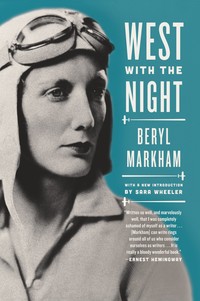
West With the Night, by Beryl Markham
Markham was a fiercely independent woman. Raised in British East Africa on her father’s horse farm in the early 1900s, she learned to hunt, ride, fly planes, and—above all else—rely on herself. An ambitious aviator, she was the first person to fly solo, nonstop, across the Atlantic from Britain to North America. West With the Night recounts the events that led her to undertake that journey, from her first brushes with danger as a child in lion country to her night flights on search-and-rescue missions. Much like May Sarton, Markham regarded the longest, loneliest hours of her life—whether in the cockpit, the wilderness, or the riding arena—as a test of her mettle. Unlike Sarton, Markham had a life so full of adventure that her memoir reads almost like a fairy tale; she whisks the reader away in her biplane. Her reflections on aviation are shot through with gorgeous descriptions of the earth and the sky as she flies by night across Africa and around the world: “The air takes me into its realm,” she writes. “Night envelops me entirely, leaving me out of touch with the earth, leaving me within this small moving world of my own, living in space with the stars.” Even if Markham’s book is too thrilling to send you to sleep, it is a dream to read.

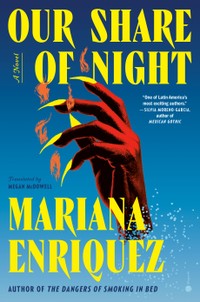
Our Share of Night, by Mariana Enríquez
In Enríquez’s dizzy, disorienting fable, something obscure and malevolent is feeding on human depravity. “Juan was going to open the Darkness,” she writes, “and the Darkness would come and eat.” Light on plot but heavy on atmosphere, Our Share of Night defies every narrative convention and plunges the reader into a stagnant, black fever dream that persistently blurs the border between history and fantasy. In its phantasmagoric allegory for the resounding horrors of the Argentine military dictatorship, members of the mysterious Order torture and mutilate people chosen as mediums in order to summon the ravenous Darkness and plead with it for immortality. But when the newest medium rebels, the repercussions ripple through the waking and the sleeping worlds. This novel knows the lonely agony of communing with the night.

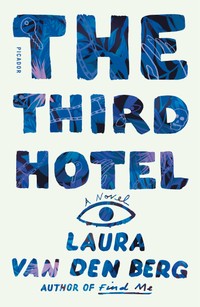
The Third Hotel, by Laura van den Berg
Van den Berg’s slim and unsettling novel The Third Hotel follows Clare, a recent widow, to Havana for a film conference she had planned to attend with her husband. But he’s been killed by a car on a nighttime walk, and on the very first page she admits to “experiencing a dislocation of reality.” As Clare struggles to navigate Cuba and her husband’s alienating academic world, van den Berg captures both the chimerical quality of traveling alone in a foreign country and the sleepwalking trance of grief, where sense and meaning seem to collapse. Then, when Clare’s dead husband appears on a street corner—apparently alive and apparently well—the novel takes a turn toward the unreality of a lucid dream through quietly spellbinding prose. Clare is not a passive sleeper; she’s an active player in the metaphysical game unfolding, even if she does not know the rules.


Desert Solitaire: A Season in the Wilderness, by Edward Abbey
“June in the desert. The sun roars down from its track in space with a savage and holy light, a fantastic music in the mind,” Abbey wrote as a park ranger in the late 1950s at what was then called Arches National Monument. Desert Solitaire, culled from Abbey’s journals, became a cult classic in the early environmental movement. A misanthrope of the first order, the author thrives on solitude; his contempt for tourists and developers is matched only by his reverence for the arid landscape. His digressive prose will soothe an unquiet mind with hypnotically repetitive passages: My favorite chapter, simply titled “Rocks,” opens with a long list of the poetic scientific names of various types of stone. If that doesn’t put you to sleep (I recommend the audiobook, read with sonorous grace by Michael Kramer), the tall tale it bleeds into might keep you up for the next half hour. Readers who finish the chapter will be transfixed by the imaginative splendor of Abbey’s language as he describes the hallucinations of a lost teenager addled by sunstroke and a handful of poisonous berries choked down in desperation.

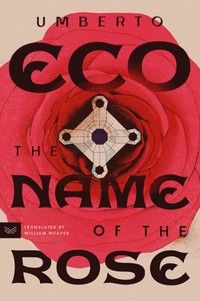
The Name of the Rose, by Umberto Eco
Eco’s medieval murder mystery resists interpretation like a particularly thorny dream. “A narrator should not supply interpretations of his work,” Eco explains in the postscript to his 1980 fiction debut. “Otherwise he would not have written a novel, which is a machine for generating interpretations.” That The Name of the Rose refuses easy resolution is fitting: This is a book about books. The Order of Saint Benedict has called upon the investigative instincts of Franciscan friar William of Baskerville after the grisly murder of one of their monks. Eco’s narrative structure mimics the rhythm of life in the monastery, where “the monk must rise in darkness and pray at length in darkness, waiting for day and illuminating the shadows with a flame of devotion.” But the long nighttime hours are not only a time of prayer and reflection, as any insomniac knows. Within Eco’s closed, claustrophobic world, secrets, sins, and murder stalk the monastery after sunset. This unconventional locked-room mystery, where good and evil brush elbows and old books are worth killing for, is an ideal distraction for a racing mind—instead of worrying about what you have to do tomorrow, you’ll drift off wondering whodunit.

When you buy a book using a link on this page, we receive a commission. Thank you for supportingThe Atlantic.



